Erik Oveson
Knowledge-Centric Templatic Views of Documents
Jan 13, 2024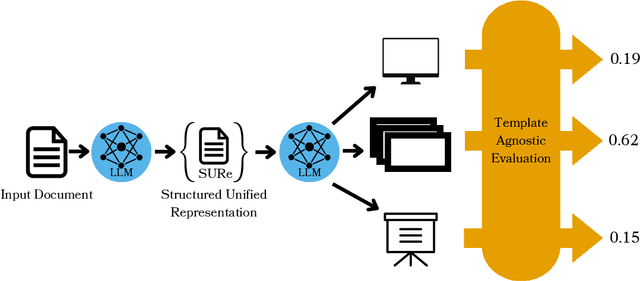
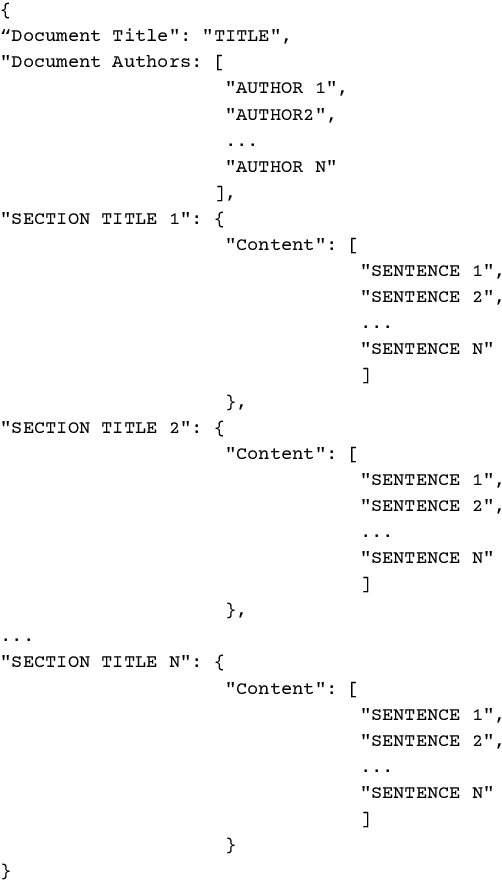
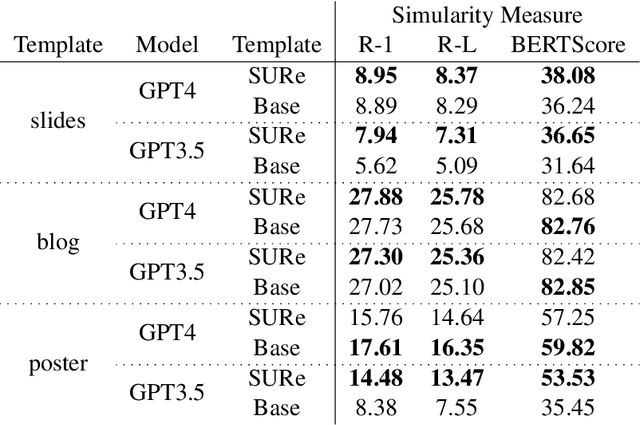
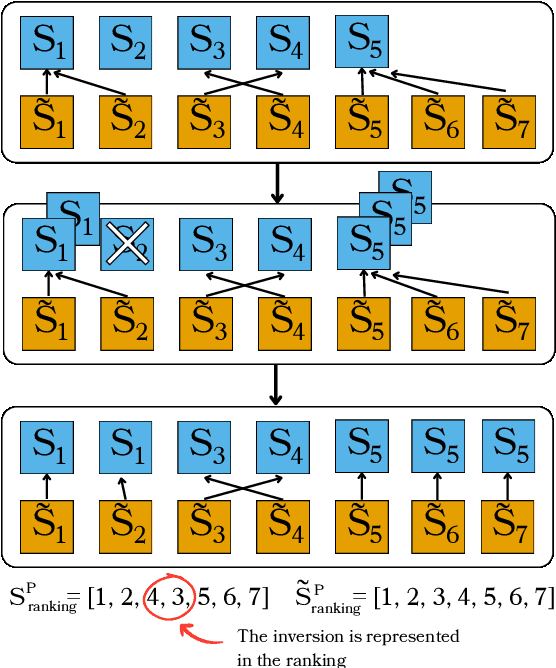
Abstract:Authors seeking to communicate with broader audiences often compose their ideas about the same underlying knowledge in different documents and formats -- for example, as slide decks, newsletters, reports, brochures, etc. Prior work in document generation has generally considered the creation of each separate format to be different a task, developing independent methods for generation and evaluation. This approach is suboptimal for the advancement of AI-supported content authoring from both research and application perspectives because it leads to fragmented learning processes, redundancy in models and methods, and disjointed evaluation. Thus, in our work, we consider each of these documents to be templatic views of the same underlying knowledge, and we aim to unify the generation and evaluation of these templatic views of documents. We begin by introducing an LLM-powered method to extract the most important information from an input document and represent this information in a structured format. We show that this unified representation can be used to generate multiple templatic views with no supervision and with very little guidance, improving over strong baselines. We additionally introduce a unified evaluation method that is template agnostic, and can be adapted to building document generators for heterogeneous downstream applications. Finally, we conduct a human evaluation, which shows that humans prefer 82% of the downstream documents generated with our method. Furthermore, the newly proposed evaluation metric correlates more highly with human judgement than prior metrics, while providing a unified evaluation method.
Reinforcement Guided Multi-Task Learning Framework for Low-Resource Stereotype Detection
Mar 27, 2022
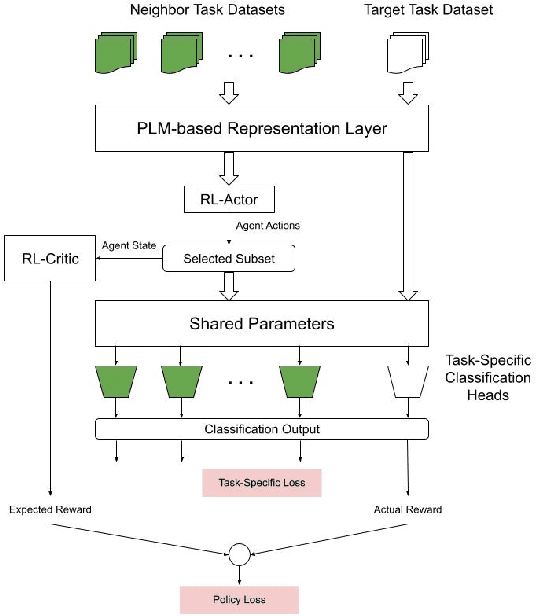
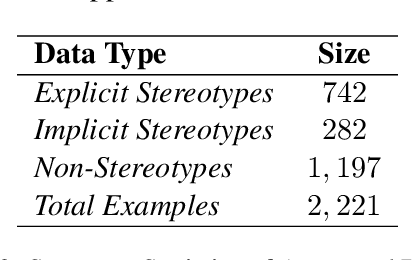
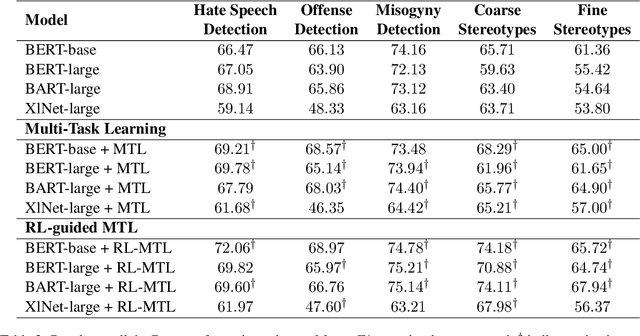
Abstract:As large Pre-trained Language Models (PLMs) trained on large amounts of data in an unsupervised manner become more ubiquitous, identifying various types of bias in the text has come into sharp focus. Existing "Stereotype Detection" datasets mainly adopt a diagnostic approach toward large PLMs. Blodgett et. al (2021a) show that there are significant reliability issues with the existing benchmark datasets. Annotating a reliable dataset requires a precise understanding of the subtle nuances of how stereotypes manifest in text. In this paper, we annotate a focused evaluation set for "Stereotype Detection" that addresses those pitfalls by de-constructing various ways in which stereotypes manifest in text. Further, we present a multi-task model that leverages the abundance of data-rich neighboring tasks such as hate speech detection, offensive language detection, misogyny detection, etc., to improve the empirical performance on "Stereotype Detection". We then propose a reinforcement-learning agent that guides the multi-task learning model by learning to identify the training examples from the neighboring tasks that help the target task the most. We show that the proposed models achieve significant empirical gains over existing baselines on all the tasks.
 Add to Chrome
Add to Chrome Add to Firefox
Add to Firefox Add to Edge
Add to Edge